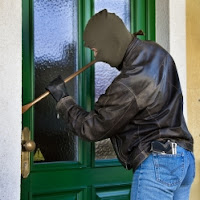Vehicles -
Smoke –
Refers to "sudden and accidental damage from smoke." Any sudden and accidental damage from smoke caused from any source except smoke from agricultural smudging or industrial operations would be covered. The terminology used makes clear that the damage must occur over a short period of time. A prime source of claims is furnace malfunction that results in the backup and blowing of smoke and grit into rooms through a central heating system.
Agricultural smudging would include damage from burn-off of growing materials on or near the covered premises and use of smudge pots to protect growing crops and trees from frost. Damage from smoke associated with businesses would include that caused by the "blowing out" of smokestacks in the course of periodic cleaning. Excluded damage would also include damage caused by smoke from malfunctioning industrial heating and processing equipment.
Volcanic Eruption -
Damage caused to insured property by the eruption of a volcano is covered under the Dwelling Policy Program; however, loss caused by earthquake, land shock waves or tremors is excluded.
This peril is designed to address the damage caused by the eruption of a volcano, including the ensuing lava flow and airborne particles. In most policies, one or more volcanic eruptions that occur within a 72-hour period are considered to be a single covered event.
Vandalism and Malicious Mischief -
Vandalism and malicious mischief are generally cited as a single peril meaning willful or malicious physical injury to or destruction of property. "Vandalism" means willful destruction or defacement of things of beauty. It implies general hostility to nice things and satisfaction from their destruction.
"Malicious mischief" implies damage to property motivated by hatred or spite. It is not associated with beautiful things, but rather with utilitarian things such as machinery and business buildings and their contents. Acts leading to this kind of destruction are premeditated and include those arising from resentment and ill will during labor disputes.
Accidental damage is not covered under the "vandalism" peril. Coverage applies only when the damage is intentional. The vandalism and malicious mischief peril does not include loss to property on the "residence premises" if the dwelling has been vacant for more than a number of consecutive days immediately before the loss (the period may vary by policy). A dwelling being constructed is not considered vacant. Furthermore, the vandalism or malicious mischief peril does not include loss by pilferage, theft, burglary or larceny.
Damage caused by burglars refers to the damage caused during a break-in and not to the actual stolen property. For example, if two burly burglars attempted to remove a grand piano from the insured residence, the actual damage to the walls, floors and doorways caused by the piano being moved would be covered. The actual loss of the piano would not. Typically there is no coverage for loss to property in a building that has been vacant for more than (a specified number) of days immediately before the loss.
Falling Objects -
This peril covers damage to the exterior of the insured premises and its contents if the falling object first damages the roof or exterior wall. Damage caused by any falling object is covered, including falling trees; however, damage to the falling object itself is not covered. This peril does not include loss to outdoor radio and television antennas and aerials including their lead-in wiring, masts and towers, outdoor equipment, awnings and fences.
Weight of Ice, Snow or Sleet -
Damage to the insured building and/or contents due to the weight of ice, snow or sleet is covered. This coverage excludes loss to certain property, such as: awnings; fences; patios; swimming pools; foundations; retaining walls; bulkheads; piers; wharves; or docks.
Accidental Discharge -
Damage to insured property caused by accidental discharge or overflow of water or steam from within a plumbing, heating, air-conditioning or automatic fire protective sprinkler system or household appliance is covered. Coverage includes the cost of tearing out and replacing any part of the building on the residence premises necessary to repair the system or appliance from which the water or steam escaped.
Damage caused by continuous or repeated seepage or leakage to the insured property is not covered; the cause must be sudden and unforeseen. Damage caused by freezing is not covered under this peril. Further, this type of loss is not covered if the dwelling has been vacant for more than (a specified number of) days immediately before the loss. A dwelling being constructed is not considered vacant.
Sudden and Accidental Tearing Apart -
Sudden and accidental tearing apart, cracking, burning or bulging of steam or hot water heating systems, air conditioning systems or fire protective sprinkler systems or appliances for heating water is covered. The emphasis on this peril is that damage caused by the steam, hot water and related systems must be sudden and accidental as opposed to gradual and foreseen.
Freezing -
Loss caused by the freezing of a plumbing, heating, air-conditioning or automatic fire protective sprinkler system or of a household appliance is covered. This peril does not include loss on the residence premises while the dwelling is vacant, unoccupied or being constructed unless the insured has taken reasonable care to maintain heat in the building or shut off the water supply and drain the system and appliance of water.
Electrical Damage -
This peril involves damage to insured property as a result of sudden and accidental artificially generated electrical current. Tubes, transistors and similar electrical components are not covered.
--------------------------------------------------------------------------------
COPYRIGHT: Insurance Publishing Plus, Inc. 2012
All rights reserved. Production or distribution, whether in whole or in part, in any form of media or language; and no matter what country, state or territory, is expressly forbidden without written consent of Insurance Publishing Plus, Inc.



















